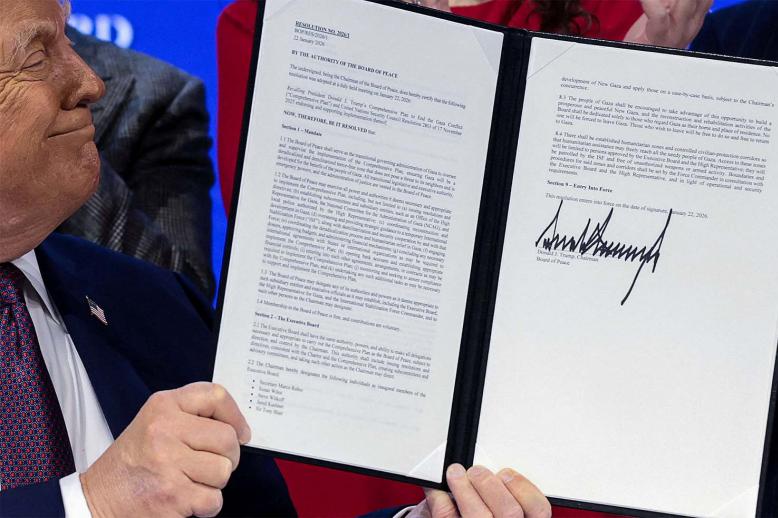Andalusia earthquake hits Spanish politics
“Electoral earthquake in Andalusia” trumpets the centre-left Spanish daily El Pais. How right it is.
The Vox party, which won 12 seats in the regional parliament December 2, has been derided as far-right, populist, anti-immigration and anti-Islam since its creation in December 2013. The party struggled to make an impression on the political landscape.
The electoral breakthrough has not only made governing Andalusia extraordinarily complicated, it has turned the Spanish political system on its head. It signals a greater fragmentation of the right — now split between the older People’s Party (PP), the more recent Citizens party and now Vox, a party that claims it wants to defend the constitutional order, the unity of Spain, centralisation of the state and insists vociferously that immigration be brought under control.
At a post-election rally, Francisco Serrano, the lead candidate for Vox said his party’s rise would bring the “Reconquista,” a term used to describe the Christian reconquest of Muslim kingdoms in the Iberian Peninsula more than 500 years ago.
The factors that brought about Vox’s eruption on the political stage include illegal immigration to Spain from Africa, which has increased three-fold this year to more than 53,000 people. This shift in illegal immigration flows was the result of the harsh line again migrants taken by the populist right-wing government in Italy.
After it was voted into office in March, the Spanish government led by the secretary-general of the Spanish Socialist Workers’ Party (PSOE), Pedro Sanchez, adopted a more tolerant attitude towards immigrants than its PP predecessor and its Italian and French neighbours. The number swelled with accompanying TV images that always give the impression of an invasion. The results of the shift for Sanchez have been disastrous
Most of the immigrants settle along the coast of Andalusia which, despite its 8.4 million inhabitants, is the poorest region in Spain and the one with the highest rate of unemployment. Tourism is the mainstay of the region but there are very few jobs in manufacturing compared with Madrid, Catalonia or the Basque country.
The vote for Vox was highest in those very small towns where there are few government jobs to remedy, to some extent, the lack of industrial ones. The resentment of the other thrives on such relative poverty and lack of hope.
A second is the decay of the PSOE, which has ruled Andalusia since 1982. Although it has reined in some of its more corrupt ways, the PSOE long behaved as a single ruling party — with an inflated regional bureaucracy catering to its friends and supporters.
Since the turn of the century, the PSOE, like its socialist counterparts in France, the United Kingdom and Germany, has given up defending its traditional working-class voters and paid more attention to the middle class. This explains why Vox attracts voters across traditional lines.
What is true of many of those who vote for the populist National Front party in France or who voted for Brexit in the UK — that they feel left behind by globalisation, the financial crisis of 2008 and the increasing disparity in incomes that have resulted — is true of voters in Andalusia. At some point, voters begin to snub their nose at the political establishment.
The PSOE’s defeat in Andalusia, where the number of seats it holds dropped from 47 to 33, in what was the second lowest turnout since democracy was re-established a generation ago, was made worse by the very unpopular leader the party has given itself. Susana Diaz, secretary-general of PSOE’s Andalusia branch, is not popular in her own party.
The populist wave has hit Spain, which had appeared to be shielded from such forces. Vox’s ambitions are not limited to southern Spain, as its leader’s capacity to fill a 9,000-seat stadium in Madrid recently demonstrated.
Vox President Santiago Abascal clearly intends to turn the 11% of the vote he won December 2 into a broader base in the European and maybe general elections that are expected next year in Spain.
Some of those who voted for Vox will have been motivated by the Catalan crisis but the effect of the battle between Madrid and Barcelona is probably less important than the two factors mentioned earlier.
Conservative parties are facing increasingly fragmented constituencies after the PP had the second worst result in its history, falling from 33 to 26 seats, and the Citizens party increased its seats from nine to 21.
Voters on the left are quite as badly split between the PSOE and Podemos, which, in alliance with other left-wing groups, took 17 seats, under the banner Adelante Andalusia.
To that extent, the vote reflects a European-wide trend of increasing defiance of voters towards sitting political elites and consequent fragmentation. The result certainly complicates the task of the minority Socialist government of Prime Minister Pedro Sanchez, who is hardly likely to call snap elections any time soon.
Vox leaders say they want to make Spain great again but, as with those who argue in favour of Brexit, the means of achieving that goal are hazy. They like to say their party is one of “extreme necessity” rather than extremism.
Beyond these words, which attempt to throw a smokescreen over what is a hard-right wing party, the uncomfortable truth is that a five-party scenario is in place across Spain and that life for African migrants will not become more pleasant.
Francis Ghiles is an associate fellow at the Barcelona Centre for International Affairs.
This article was originally published in The Arab Weekly.







